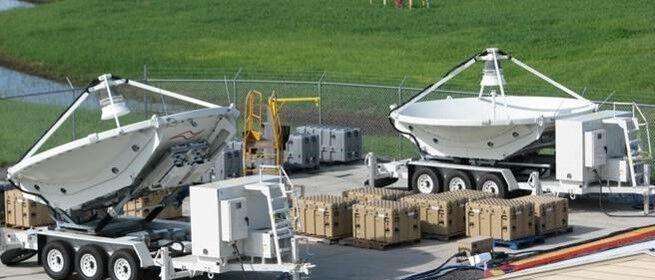Source: World Wide Web
According to the information disclosed by the US media, the US Space Force recently invested about $120 million to upgrade its anti-communication system (CCS) to attack early warning, communications and broadcast satellite systems. The anti-communications system is said to be the U.S. Space Force's first offensive weapon system.

U.S. Space Force Land-Based Anti-Communications System Infographic
According to the US "Air Force Magazine" reported on October 27, according to an announcement on the 22nd, the US Space Force Space Systems Command signed a contract worth $120.8 million to develop "land-based deployable electronic warfare capabilities" to reverse the communications, early warning, broadcasting and other satellite systems (to provide services).
Under the contract, a total of 16 anti-communication systems located at three bases in the continental United States and confidential locations abroad will be upgraded, which is scheduled to be completed by February 2025.
The Anti-Communications System (CCS) is currently the only offensive weapon system in the U.S. Space Force. It is reported that it was deployed in 2004 and its main task is to suppress satellites.
According to reports, the Space Force officially became an independent service of the US military in December 2019, used for military operations in outer space, and is currently receiving relevant functional departments that integrate the US Air Force, Army, Navy and other military and civilian agencies. Electromagnetic warfare is one of seven areas of development for the U.S. Space Force.
The Chinese Ministry of Foreign Affairs has already responded to the establishment of the Space Force by the United States and the development of space military forces. Earlier spokesman Geng Shuang said that this shows that the current risk of weaponization and battlefieldization of outer space is increasing, and The Chinese side is deeply worried about this. Outer space is the common wealth of all mankind. Ensuring the peaceful use of outer space and preventing the weaponization and arms race in outer space are not only in the common interests of all countries, but also the common responsibility of all countries. Under the current circumstances, the necessity and urgency of negotiating and concluding an international legal instrument on foreign air control have further increased. We hope that the international community, especially the major powers concerned, will adopt a prudent and responsible attitude to prevent outer space from becoming a new battlefield and make joint efforts to maintain lasting peace and tranquillity in outer space.